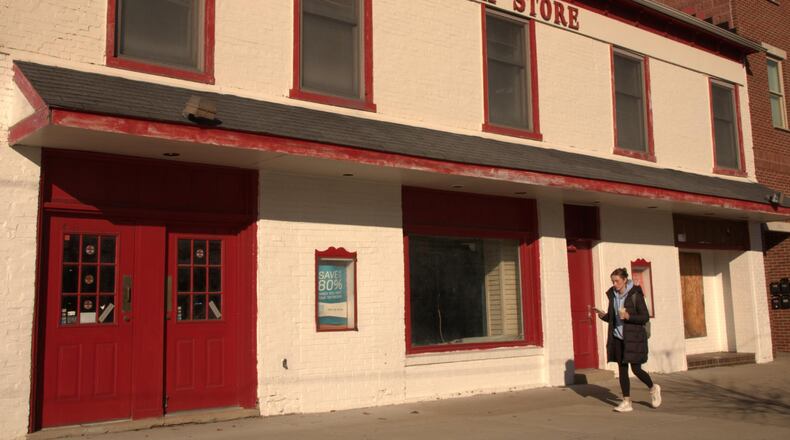Christopher Skoglind, chair of the city’s historic and architectural preservation commission, said it is the only building to have been reclassified since the system was established in 2018.
“I think it was the right thing to do, for both the property owner and as well as the city,” Skoglind said.
The building was originally built in 1839 and was classified as “historic” due to its Federal-style architecture indicated by design elements such as brick masonry, wooden shutters and panels. However, throughout the years, the store has undergone several renovations that have altered both the interior and exterior of the building.
According to an analysis sponsored by building owner Benjy Federbush, the front portion of the building “does not retain historic integrity” due to alterations to the brick, contemporary additions to the façade and a lack of “interior historic fabric.”
With the building downgraded to “historic non-contributing,” Perry said Federbush can submit a reuse plan for the property which no longer requires the preservation of the building’s façade. Some of these applications do not require a hearing, but Perry said if a reuse plan is submitted for this property, there will likely be two hearings due to the probability of demolition.
A new building can be no more than four stories tall, have no more square footage than three times the lot area and must use 70% of the ground floor for non-residential purposes according to city regulations, he said. The upper floors can be residential.
However, the reuse plan doesn’t have to create another building. It could also be landscaping or green space.
Perry said he encouraged Federbush’s architect to “do something new and different” and incorporate more modern elements into the property’s redesign.
“The main thing we’re excited about is it means that the owner is doing something,” Perry said.
Before it was occupied by Follett’s Bookstore in 1971, the building housed businesses including a cobbler shop, car dealership, printing company and music store.
Lisa Martin, budget specialist for University Libraries at Miami University who worked at Follet’s for 30 years, said she is disappointed the owner let the property sit vacant for so long.
“I just think it’s absurd,” Martin said. “I absolutely think it’s ridiculous that they bought a building in a prime location and have let it sit and rot.”
Although Martin is excited to see what will go into the space, she said she is concerned it will become more “apartments and an empty retail space.”
According to the Butler County Auditor, Federbush is listed as the representative for several Limited Liability Companies (LLCs): 110 High Street LLC and 16 S Poplar LLC. Both LLCs list their mailing addresses in New York City.
In addition to the vacant bookstore, Federbush also owns the vacant buildings at 13 N. Poplar St., 16 S. Poplar St. and 108 E. High St., along with a parking structure on East Church Street.
The bookstore, two properties at 108 E. High St. and the parking structure on East Church Street were purchased for $2.85 million each. The property at 13 N. Poplar St. was purchased for $1.15 million, and the property at 16 S. Poplar St. was purchased for $850,000.
The Oxford Observer reached out to Federbush’s representative but did not receive a response by publication time.
This article was originally published by the Oxford Observer, a digital news publication with content from Miami University students.
About the Author
